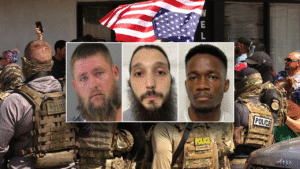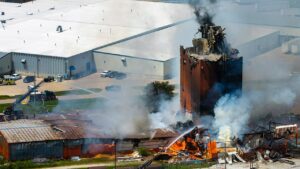Lawmakers on the House Homeland Security Committee recently held a closed-door congressional roundtable to discuss the increasing incidents of antisemitic violence in the U.S. The meeting took place on July 22 and included stakeholders and law enforcement officials.
The roundtable was prompted by concerns about antisemitic violence following recent attacks in Boulder, Colorado, and Washington, D.C. There are also worries about the potential election of Zohran Mamdani, a New York City mayoral candidate who has expressed anti-Israel views.
During the roundtable, Rep. August Pfluger, the chairman of the Homeland Security Committee’s counterterrorism and intelligence subcommittee, emphasized the need to support Jewish communities facing fear and hatred. He highlighted the importance of combating antisemitic and anti-Israel rhetoric that is becoming more mainstream.
The discussion at the roundtable focused on improving coordination between different agencies, sharing intelligence, providing training, and enhancing enforcement to prevent and respond to antisemitic violence effectively. The meeting specifically addressed the need to strengthen communication between the Department of Homeland Security, the FBI, and state and local law enforcement agencies.
Michael Masters, the CEO of the Secure Community Network, emphasized the importance of interagency coordination in addressing the 500 credible threats to life flagged by his organization this year. He stressed the need for intelligence sharing and collaboration to combat antisemitic threats effectively.
Participants at the roundtable also highlighted the spread of extremist rhetoric on college campuses and social media platforms. They discussed the challenges posed by homegrown and foreign-influenced extremism, including instances where anti-Israel terrorist organizations have promoted attacks in the U.S.
The roundtable is expected to inform legislative priorities aimed at enhancing officer training, improving data collection, and ensuring robust prosecution of antisemitic offenses. Representatives from organizations such as the Anti-Defamation League and law enforcement officials were among those who participated in the discussion.
Antisemitic violence has been on the rise, with the Anti-Defamation League reporting 9,354 incidents of harassment, assault, and vandalism in the U.S. in 2024. This represents a 5% increase from the previous year and a 344% increase over the past five years. New York saw the highest number of antisemitic incidents in 2024, raising concerns about the safety of the Jewish community in the state.
The potential election of Zohran Mamdani as mayor of New York City has added to these concerns, given his past statements and associations. While Mamdani initially failed to condemn certain inflammatory language, he has since clarified his position and pledged to discourage its use.
Despite this, there are lingering fears within the Jewish community about what Mamdani’s leadership could mean for their safety and well-being in New York City. With approximately 1.4 million Jewish residents in the Greater New York Area, there is a sense of unease about the potential impact of his policies and rhetoric.
Overall, the roundtable served as a critical platform for discussing and addressing the growing threat of antisemitic violence in the U.S. It underscored the need for proactive measures, collaboration between agencies, and a commitment to combating hatred and discrimination in all forms.





